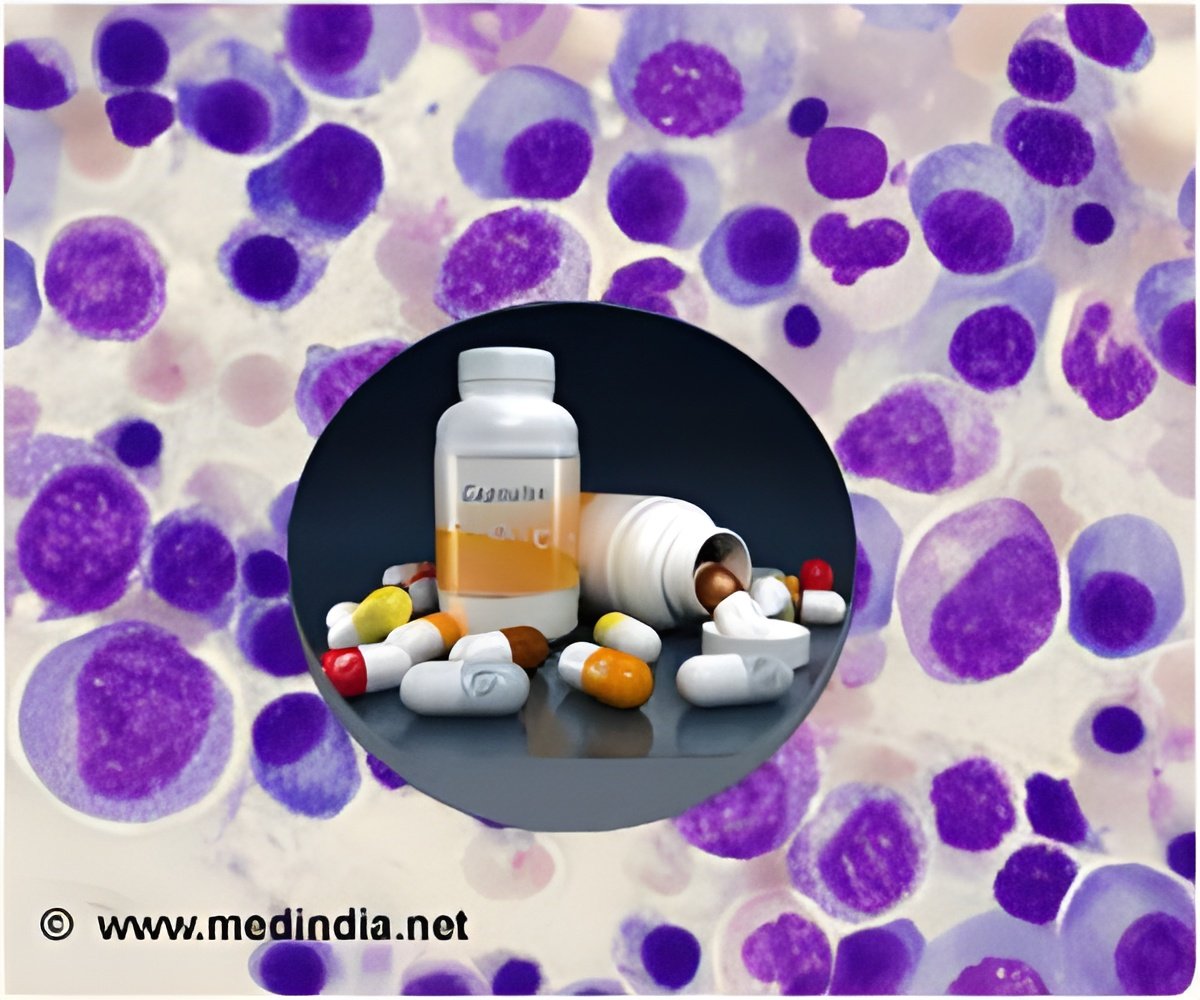According to a study a new oral agent under review by the U.S. Food and Drug Administration (FDA) is safe and effective in treating relapsed and treatment-resistant multiple myeloma.

"When multiple myeloma no longer responds to two major classes of drugs the average patient survival is only nine months and progression-free survival only five months, representing a significant unmet need for patients with advanced disease," said Sundar Jagannath, MD, Director of the Multiple Myeloma Program and Professor of Medicine at The Tisch Cancer Institute at The Mount Sinai Medical Center and first author on the trial, who presented the trial in an oral abstract session at ASH. "Pomalidomide represents an exciting development for our patients."
Patients were administered four mg/day of pomalidomide plus 40 mg/week of dexamethasone, a steroid used in standard treatment, for 21 days of a 28-day cycle. Progression-free survival was 4.6 months and overall survival was 16.5 months.
The scientists also conducted a subanalysis of this group based on age, as treating older people with multiple myeloma is especially difficult. Progression-free survival was 4.7 months in people under 65 and 3.7 months in people over 65, and overall survival was 19.7 months in people under 65 and 11.8 months in people over 65.
"We have made great strides in prolonging the lives of people with multiple myeloma, increasing overall survival from three years to as high as seven years in less than a decade," said Dr. Jagannath. "These results show that pomalidomide in combination with dexamethasone is a promising new option to extend survival even longer, including in older patients."
Pomalidomide was well-tolerated, with patients experiencing side effects common to this drug class, including low white blood cell count, anemia, pneumonia, and low blood platelet count.
Advertisement
Dr. Jagannath leads one of the largest multiple myeloma research and treatment programs in the world. He and his team, which includes Ajai Chari, MD, Assistant Professor of Medicine in the Division of Hematology and Oncology, seek to explore new treatments for this deadly cancer and extend survival in patients such that it becomes a chronic disease.
Advertisement
Dr. Jagannath receives compensation from Celgene Corporation as a scientific and clinical advisor.
About The Mount Sinai Medical Center
The Mount Sinai Medical Center encompasses both The Mount Sinai Hospital and Mount Sinai School of Medicine. Established in 1968, Mount Sinai School of Medicine is one of the leading medical schools in the United States. The Medical School is noted for innovation in education, biomedical research, clinical care delivery, and local and global community service. It has more than 3,400 faculty in 32 departments and 14 research institutes, and ranks among the top 20 medical schools both in National Institutes of Health (NIH) funding and by US News and World Report.
The Mount Sinai Hospital, founded in 1852, is a 1,171-bed tertiary- and quaternary-care teaching facility and one of the nation's oldest, largest and most-respected voluntary hospitals. In 2011, US News and World Report ranked The Mount Sinai Hospital 14th on its elite Honor Roll of the nation's top hospitals based on reputation, safety, and other patient-care factors. Mount Sinai is one of 12 integrated academic medical centers whose medical school ranks among the top 20 in NIH funding and US News and World Report and whose hospital is on the US News and World Report Honor Roll. Nearly 60,000 people were treated at Mount Sinai as inpatients last year, and approximately 560,000 outpatient visits took place.
Source-Newswise










